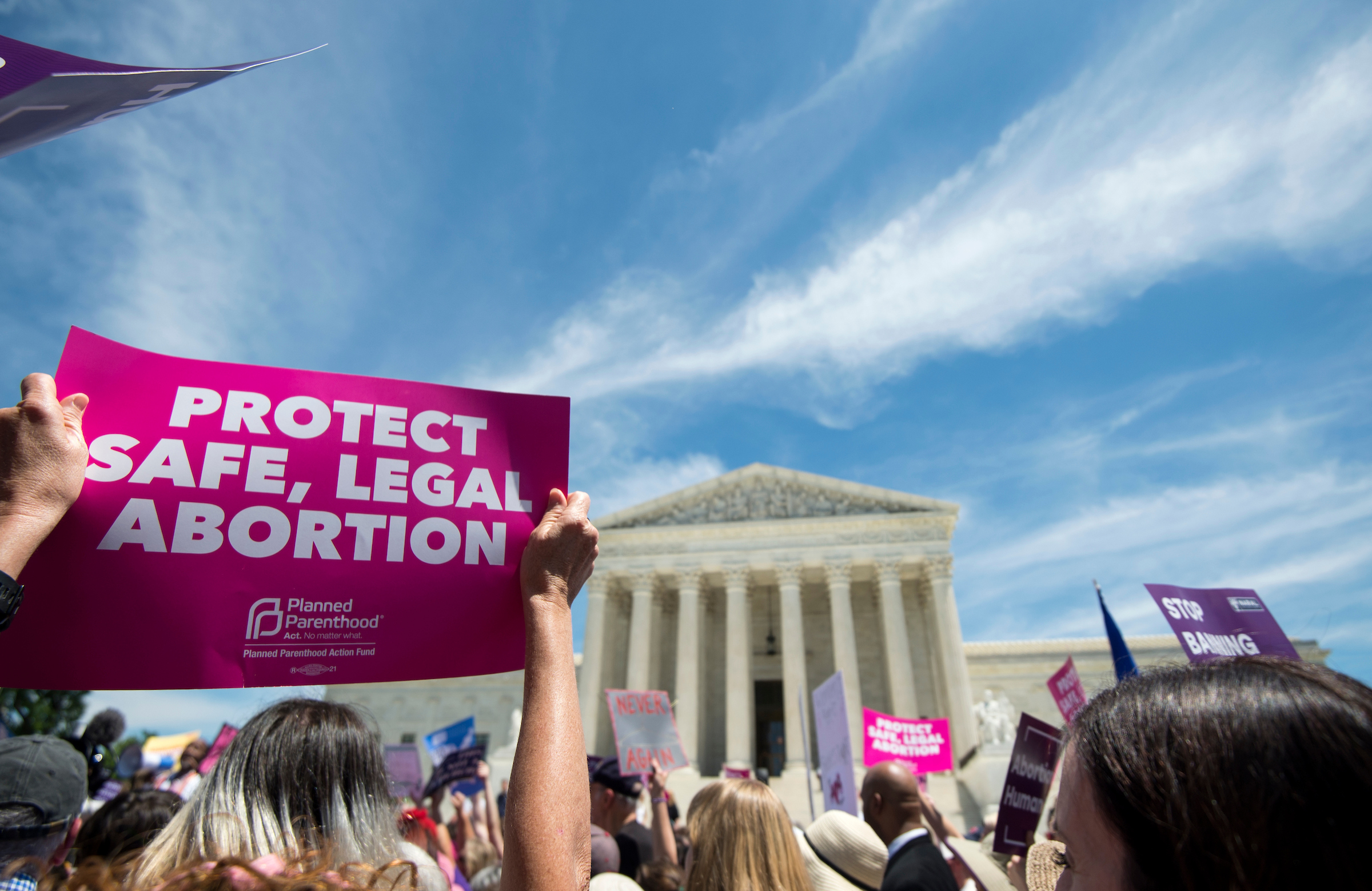Justices decline to uphold Indiana abortion ban on basis of disability, race and gender
The provision came from a 2016 law signed into law by then-Gov. Mike Pence

The Supreme Court on Tuesday overturned an appeals court ruling striking down an Indiana law that set requirements for the disposal of fetal remains.
But the court refused to hear a case challenging a separate part of the law banning abortion on the basis of genetic characteristics such as disability, race and gender. That leaves the lower court’s ruling striking down that language in place for now.
[Trump proposal would roll back transgender, abortion protections]
The moves come as anti-abortion groups have been waiting for an opportunity to challenge the precedent set under the 1973 landmark abortion case Roe v. Wade.
Both provisions come from a 2016 Indiana law signed by then-Gov. Mike Pence. The law requires fetal remains from an abortion or miscarriage be buried or cremated, which is already required for other human remains.
“The law did not affect a woman’s right under existing law ‘to determine the final disposition of the aborted fetus,’” said the court’s opinion. “This Court has already acknowledged that a State has a ‘legitimate interest in proper disposal of fetal remains,'” referring to a 1983 case, Akron v. Akron Center for Reproductive Health.
[Legal battle heats up as more states test strict abortion bans]
Justices Sonia Sotomayor and Ruth Bader Ginsburg opposed both laws.
Justice Clarence Thomas concurred with the high court’s decision.
“I would have thought it could go without saying that nothing in the Constitution or any decision of this Court prevents a State from requiring abortion facilities to provide for the respectful treatment of human remains,” he wrote in his concurrence.
[Trump civil rights official wants to defend abortion opponents and religious freedom]
On the second issue, the court’s opinion made it clear that it was not granting certiorari on the abortion ban because no other appellate court so far had ruled on a similar law.
Thomas argued the court would need to take up the issue at a later date.
“Technological advances have only heightened the eugenic potential for abortion, as abortion can now be used to eliminate children with unwanted characteristics, such as a particular sex or disability. Given the potential for abortion to become a tool of eugenic manipulation, the Court will soon need to confront the constitutionality of laws like Indiana’s,” wrote Thomas.
Ginsberg, who concurred in part and dissented in part, wrote that the fetal remains language goes against prior precedent.
“This case implicates ‘the right of [a] woman to choose to have an abortion before viability and to obtain it without undue interference from the State,’” she wrote, referring to Planned Parenthood of Southeastern Pa. v. Casey, a 1992 abortion case.
Indiana had hoped that the court would overturn a preliminary injunction blocking enforcement of the part of the law affecting disability and other traits after a federal court and circuit court both deemed the law invalid.
“The non-discrimination provisions clearly violate well-established Supreme Court precedent holding that a woman may terminate her pregnancy prior to viability, and that the State may not prohibit a woman from exercising that right for any reason,” wrote 7th Circuit Judge William J. Bauer last April.
Anti-abortion groups pushed the Supreme Court to consider the case, filing amicus briefs siding with the state last year.
Americans United for Life, which filed a brief with the Charlotte Lozier Institute in support of the court taking up the case, applauded the fetal remains decision.
“Without laws like Indiana’s fetal remains law, medical providers are free to dispose of human fetal remains by incineration with medical waste, by dumping in landfills, and even by burning the remains to generate energy,” said AUL’s Litigation Counsel Rachel Morrison. “Indiana’s law recognizes the simple biological fact that human fetuses are human beings and, as such, should be treated with humanity and dignity whether in life or in death.”
The American Civil Liberties Union, which challenges many laws that restrict abortion, also commented on the ruling.
“While this ruling is limited, the law is part of a larger trend of state laws designed to stigmatize and drive abortion care out of reach,” said Jennifer Dalven, director of the ACLU Reproductive Freedom Project, in a statement. “Whether it’s a total ban or a law designed to shut down clinics, politicians are lining up to decimate access to abortion. The ACLU will continue to fight to ensure that every person who needs an abortion can get one.”
Abortion rights advocates had lobbied against Justice Brett Kavanaugh’s nomination over concerns that he would sway the court to take up a challenge to Roe.
But Kavanaugh, along with Chief Justice John Roberts, joined the liberal justices last year in refusing to take up a separate case, in an upset to anti-abortion groups who strongly supported his nomination last year.
In December 2018, the Supreme Court declined to hear a case over whether to allow individual patients under Medicaid to sue if state officials refused to cover a health care provider’s non-abortion services because the provider separately also performs abortions. Advocates had wondered if this meant the court would be more reluctant to take up abortion cases.
Indiana attorneys filed an appeal to the Supreme Court on the Indiana case one week after Kavanaugh was confirmed.





